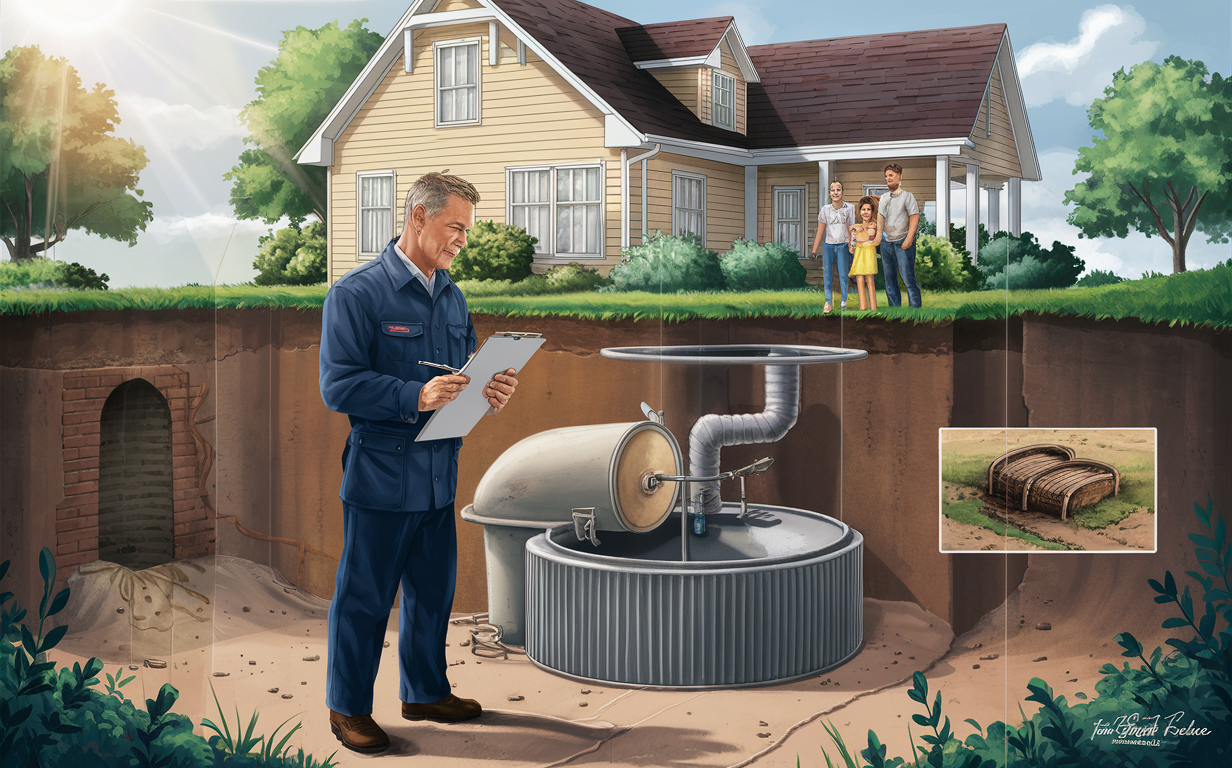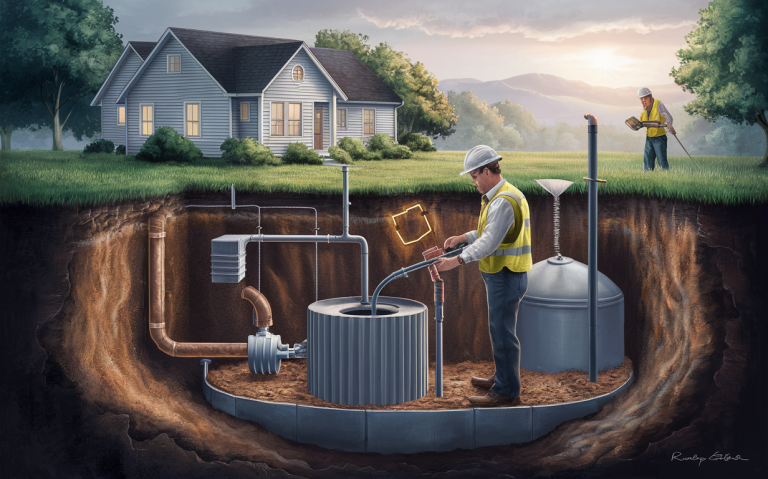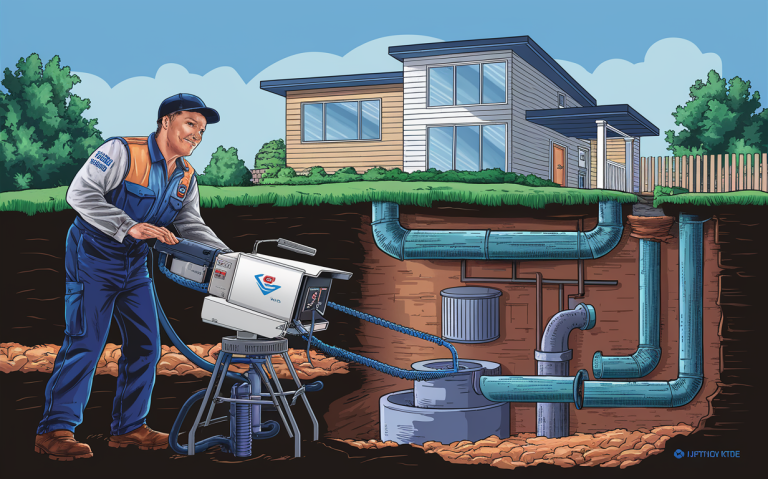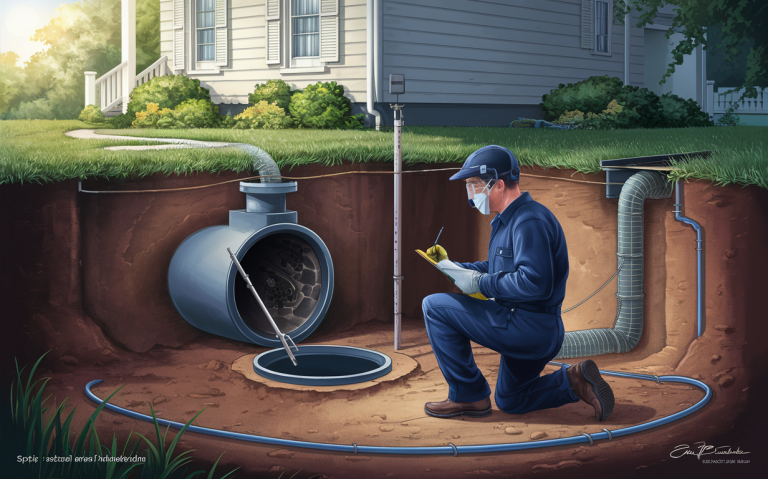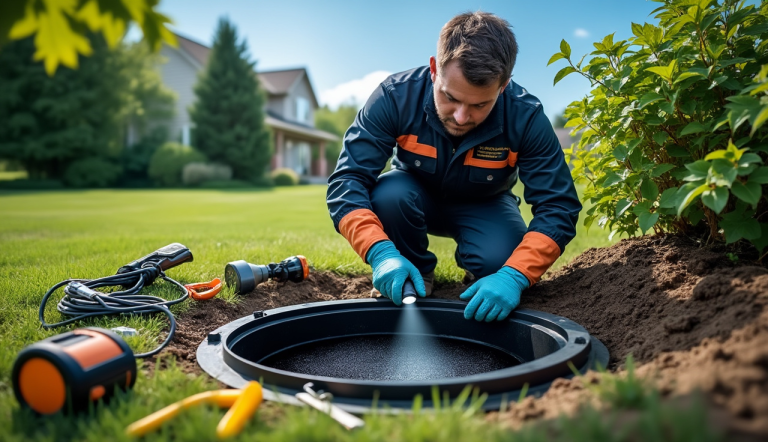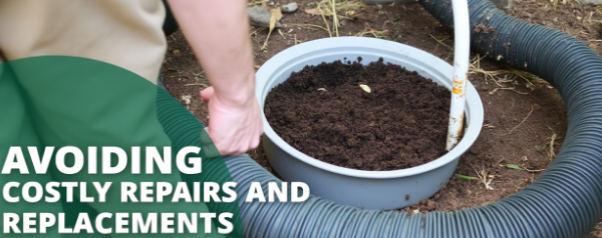Prolonging the Life of Your Septic System with Regular Inspections
Taking care of your septic system through regular inspections is the simplest and most effective way to prolong its life and ensure it functions properly. Neglecting this crucial maintenance can lead to costly repairs and unsanitary conditions.
Table of Contents
Key Takeaways
- Regular inspections help identify issues early.
- Prevention is more cost-effective than emergency repairs.
- Common problems include clogged pipes and drain field failures.
- Professional inspections provide a thorough assessment.
The Importance of Regular Inspections
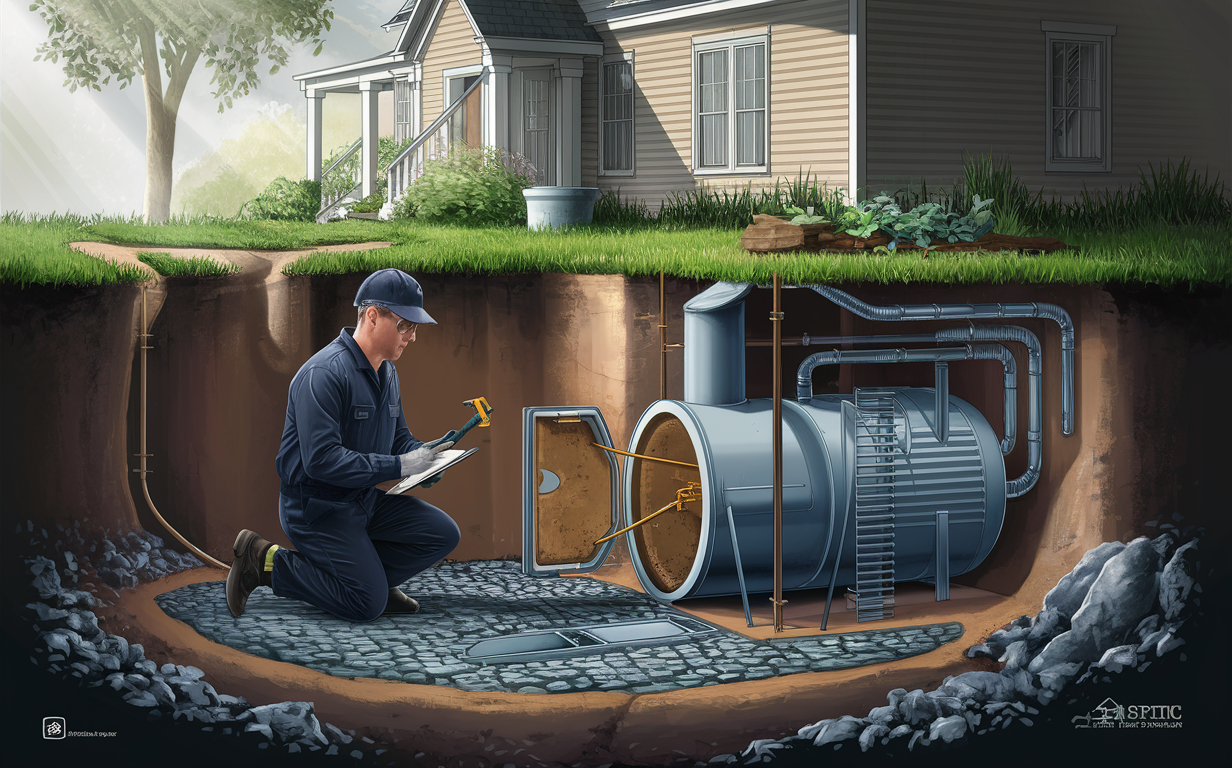
Prolonging the Life of Your Septic System with Regular Inspections are the backbone of a healthy septic system. By inspecting your septic system routinely, you can catch minor issues before they escalate into significant problems, saving you time and money in the long run.
Identifying Potential Issues Early
One of the primary benefits of routine inspections is the early identification of potential problems. A trained professional can spot signs of wear and tear, such as cracks in the tank or roots infiltrating the system. Early detection allows for timely Prolonging the Life of Your Septic System with Regular Inspections, preventing more severe damage.
Cost-Effectiveness
Routine maintenance and inspections are significantly less expensive than emergency repairs. A neglected septic system can lead to backups, foul odors, and even complete system failure, all of which are costly to fix. Prolonging the Life of Your Septic System with Regular Inspections can help you avoid these scenarios.
What to Expect During a Prolonging the Life of Your Septic System with Regular Inspections
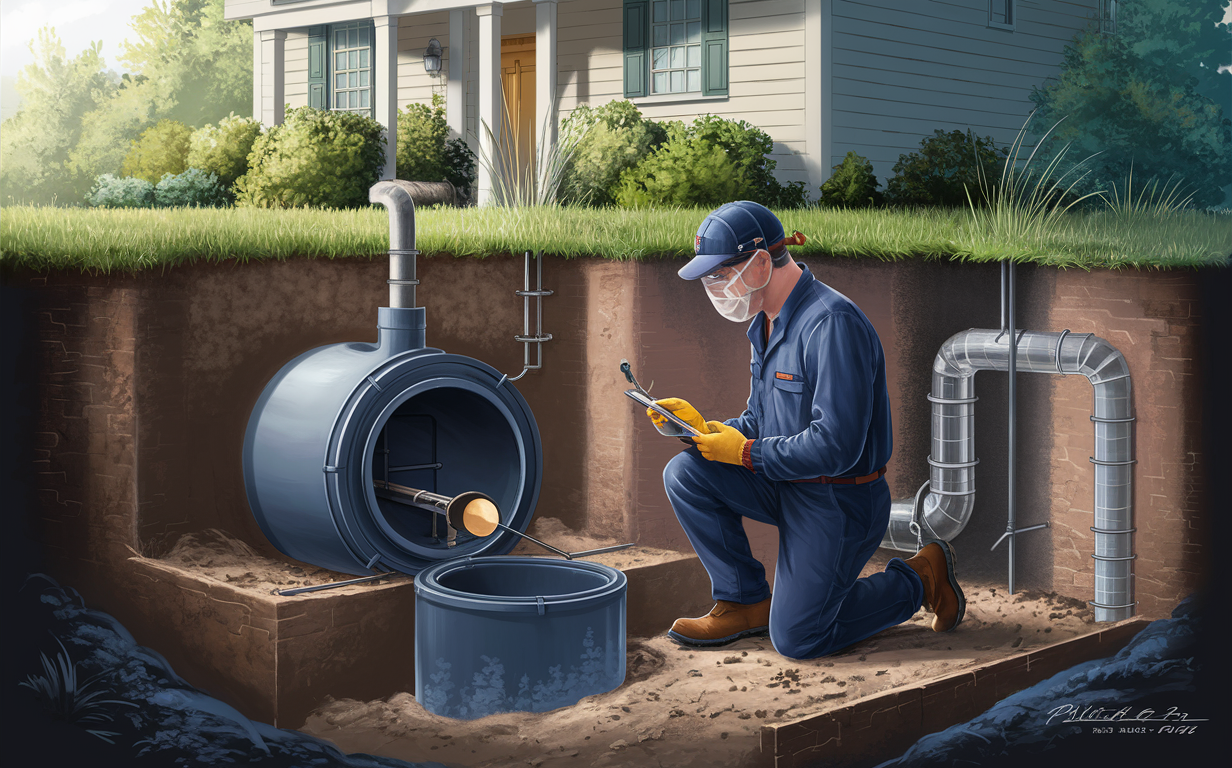
A septic inspection involves a comprehensive review of your entire system. Here’s what typically happens during a Prolonging the Life of Your Septic System with Regular Inspections:
Visual Inspection
The inspector will start with a visual inspection, checking for obvious signs of trouble like surface water pooling, foul odors, or lush vegetation around the drain field. These signs can indicate a problem with the system.
Measuring the Scum and Sludge Layers
Using specialized tools, the inspector measures the levels of scum and sludge in the tank. If these layers are too thick, it indicates that the tank needs pumping.
Checking the Drain Field
The health of the drain field is crucial for the overall functioning of the septic system. The inspector will check for signs of saturation or improper drainage, which can lead to system failure.
Inspecting the Mechanical Components
The inspector will also check the mechanical components of the system, such as pumps, alarms, and filters. Ensuring these parts are in good working order is vital for the system’s efficiency.
Common Issues Found During Regular Inspections

Regular Prolonging the Life of Your Septic System with Regular Inspections can help identify a variety of common issues that can compromise your septic system.
Clogged Pipes
Clogged pipes are a frequent problem, often caused by flushing inappropriate materials or not pumping the tank regularly. Inspections can catch these clogs early, preventing more severe blockages.
Drain Field Failures
A failing drain field can lead to untreated wastewater surfacing in your yard, creating unsanitary conditions. Routine inspections can detect early signs of drain field issues, such as slow draining sinks or toilets.
Tank Damage
Cracks or leaks in the tank can allow untreated waste to contaminate the surrounding soil and groundwater. Prolonging the Life of Your Septic System with Regular Inspections help ensure the tank remains intact and functional.
Benefits of Septic System with Regular Inspections
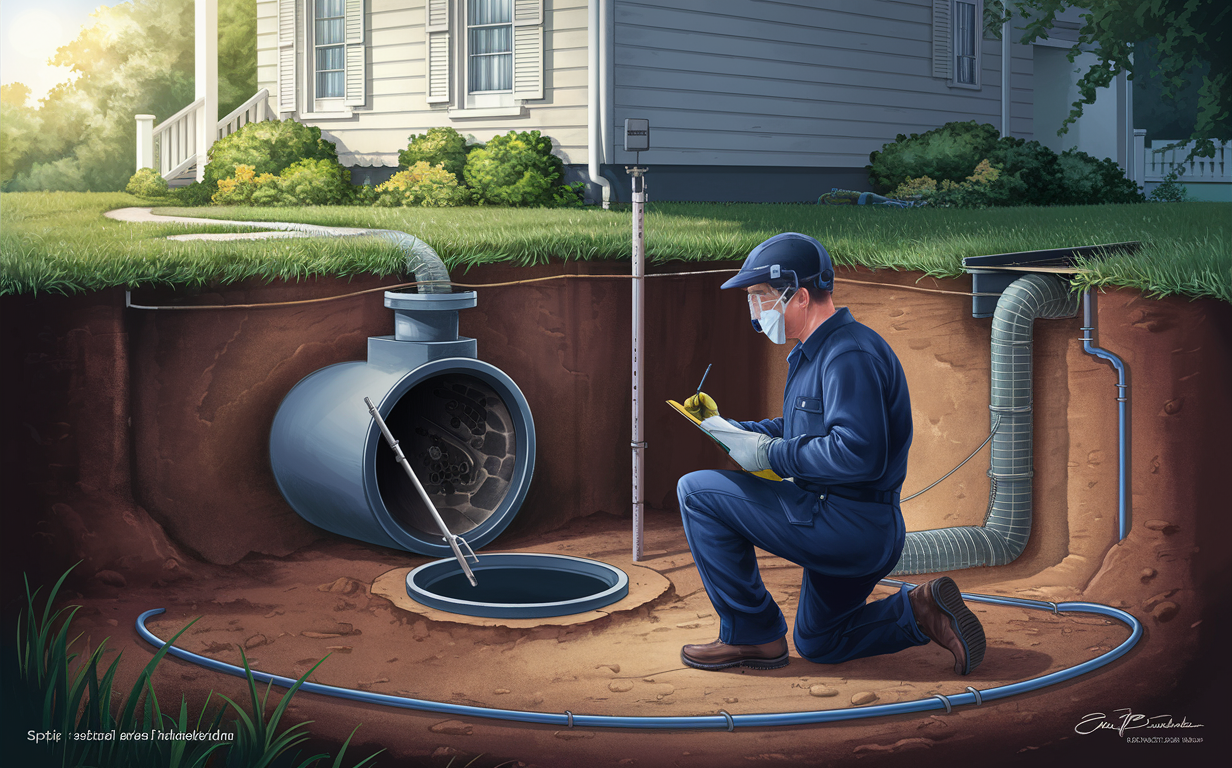
While some homeowners may feel confident performing basic maintenance, professional Prolonging the Life of Your Septic System with Regular Inspections offer several advantages.
Comprehensive Assessment
Professionals have the training and tools needed to conduct a thorough inspection, identifying issues an untrained eye might miss.
Accurate Diagnosis
A professional can accurately diagnose any problems and recommend the best course of action, whether it’s a simple repair or a complete system overhaul.
Peace of Mind
Knowing that your septic system is in good hands provides peace of mind, allowing you to focus on other aspects of homeownership.
Tips for Maintaining Your Septic System

In addition to prolonging the life of your septic system with regular Inspections, there are several steps you can take to keep your septic system in top shape.
Be Mindful of What You Flush
Avoid flushing items that can clog the system, such as paper towels, hygiene products, and grease. Stick to flushing toilet paper and human waste.
Conserve Water
Excessive water use can overload your septic system. Fix any leaks promptly and consider installing water-saving fixtures to reduce your water usage.
Use Septic-Safe Products
Choose cleaning products and detergents labeled as septic-safe to avoid harming the beneficial bacteria in your septic tank.
Regular Pumping
Even with regular inspections, your septic tank will need pumping every 3-5 years, depending on its size and the number of people in your household.
Recommended Septic System Maintenance Schedule
| Maintenance Task | Frequency |
|---|---|
| Professional Inspection | Annually |
| Septic Tank Pumping | Every 3-5 years |
| Checking Mechanical Parts | Annually |
| Visual Inspection by Owner | Monthly |
| Drain Field Inspection | Annually |
Signs Your Septic System Needs Attention
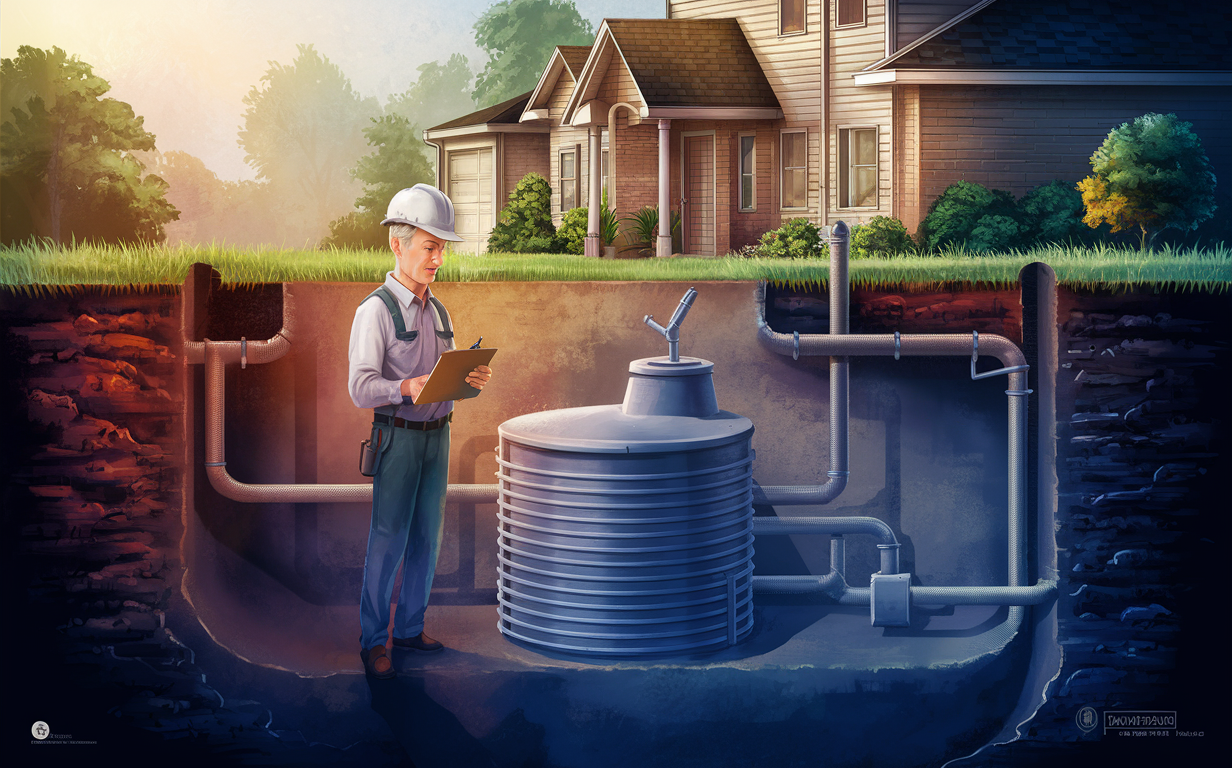
Recognizing the signs that your septic system needs attention can help you address issues before they become major problems.
Slow Drains
If your sinks, tubs, or toilets are draining slowly, it could indicate a clog in the system. This is often an early warning sign that your septic tank needs pumping.
Foul Odors
Unpleasant odors around your property can indicate a problem with your septic system. This could be a sign of a full tank or a failing drain field.
Standing Water
Pools of water around your septic system or drain field can indicate that the system is not draining properly. This is a serious issue that requires immediate attention of Prolonging the Life of Your Septic System with Regular Inspections.
Lush, Green Grass
While a green lawn is generally desirable, if the grass around your septic system is much greener and lusher than the rest of your yard, it could indicate a leak.
How to Choose the Right Professional
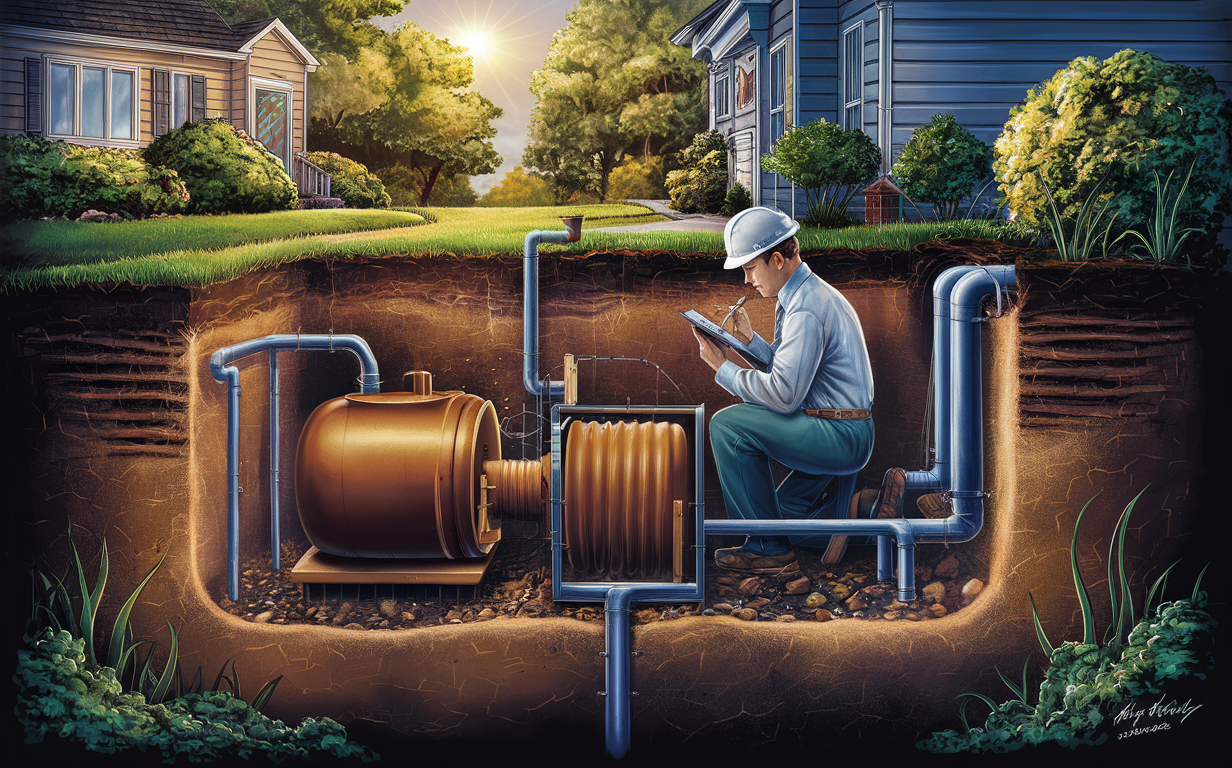
When it comes to septic inspections, choosing the right professional is crucial. Here are some tips for making the best choice to Prolonging the Life of Your Septic System with Regular Inspections.
Check Credentials
Make sure the inspector is licensed and certified to perform septic system inspections. This ensures they have the necessary training and expertise.
Read Reviews
Look for reviews and testimonials from previous customers. This can give you an idea of the inspector’s reliability and quality of work.
Ask About Experience
An experienced inspector is more likely to provide a thorough and accurate assessment. Ask how long they have been in the business and how many inspections they have performed.
Get a Detailed Report
A good inspector will provide a detailed report of their findings, including any recommended repairs or maintenance. This report can be invaluable for maintaining your septic system.
Frequently Asked Questions
How often should I have my septic system inspected?
It’s recommended to have your septic system professionally inspected at least once a year. This helps catch any potential issues early and keeps your system running smoothly.
What are the most common problems found during inspections?
Common problems include clogged pipes, drain field failures, and tank damage. Regular inspections can help identify these issues before they become major problems.
Can I inspect my septic system myself?
While you can perform basic maintenance tasks, it’s best to leave inspections to the professionals. They have the training and tools needed to conduct a thorough assessment.
How do I know if my septic system needs pumping?
Signs that your septic system needs pumping include slow drains, foul odors, and standing water around the system. Prolonging the Life of Your Septic System with Regular Inspections can help determine when pumping is needed.
Tips for Choosing a Septic Inspection Professional
- Check credentials: Ensure the inspector is licensed and certified.
- Read reviews: Look for testimonials from previous customers.
- Ask about experience: Find out how long they have been in business.
- Get a detailed report: Request a comprehensive report of their findings.
Conclusion
Prolonging the Life of Your Septic System with Regular Inspections. By identifying potential issues early, you can prevent costly repairs and ensure your system functions properly.
Choosing a qualified professional for your inspections provides peace of mind and helps maintain the health of your septic system. Follow these tips and guidelines to keep your septic system in top shape for years to come.
Prolonging the life of your septic system with regular inspections is crucial. Learn how routine maintenance prevents costly repairs. For more information, you can visit our website or contact us.

